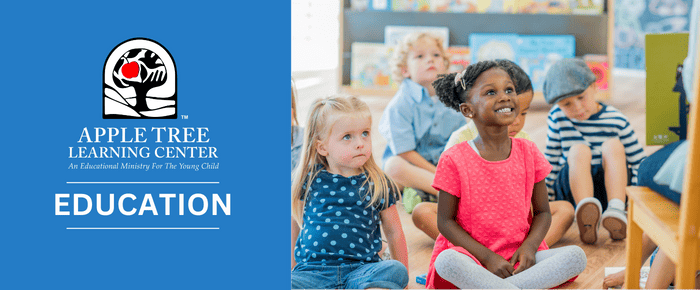Our Education Experience
Apple Tree is committed to providing young children and their families with high quality early childhood education and child care in a faith-based and nurturing setting. The early years are the most critical years in a child’s life; they have a lasting impact on a child’s development and future academic success.
The Classroom Experience
- We recognize that children are naturally curious about the world around them and learn the foundation of science, math, reading, and writing concepts through hands-on, sensory activities. Apple Tree supports children’s active exploration and investigation through creative play activities.
- We use two forms of curriculum to meet all the needs of the children in our programs. Apple Tree Learning Centers offers a blend of the Abeka faith-based curriculum to build on the foundations of reading, writing and math. We also use the Creative Curriculum for PreSchoolers. This is the most widely used preschool curriculum in the country. The parent company, Teaching Strategies, has designed this well-rounded and researched curriculum to prepare children for success in school and in life!
- Classrooms are arranged into learning centers that encourage exploration within a daily routine, including small and large group times. Children are encouraged to work and play together in small groups around the classroom.
- In each classroom you will find child-sized furniture, equipment, sinks, and toilets that will help your child develop self-reliance in taking care of his or her personal needs.
Teacher-Child Interactions
Our skilled teachers observe and assess each child’s interests and skill levels. It is through their careful observations that teachers learn how to adapt the environment and activities to meet each child’s needs effectively.
Quality Rating System
We are strong proponents of the Quality Rating Improvement System sponsored by Smart Beginnings. As a result, you will find that many policies and practices used by our schools are based directly on the standards and criteria established by the ERERS, ITERS and CLASS assessments and rating scales.




